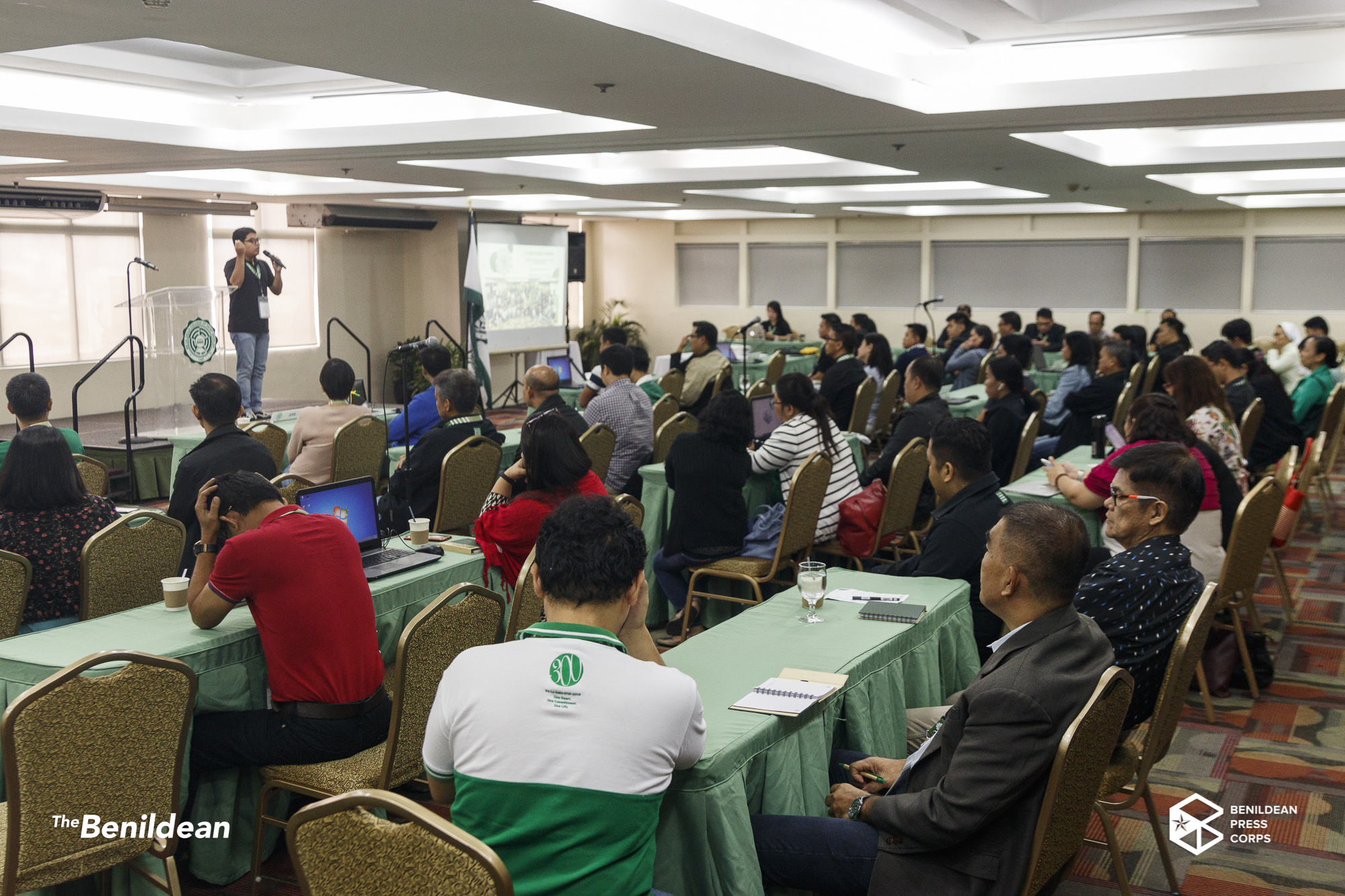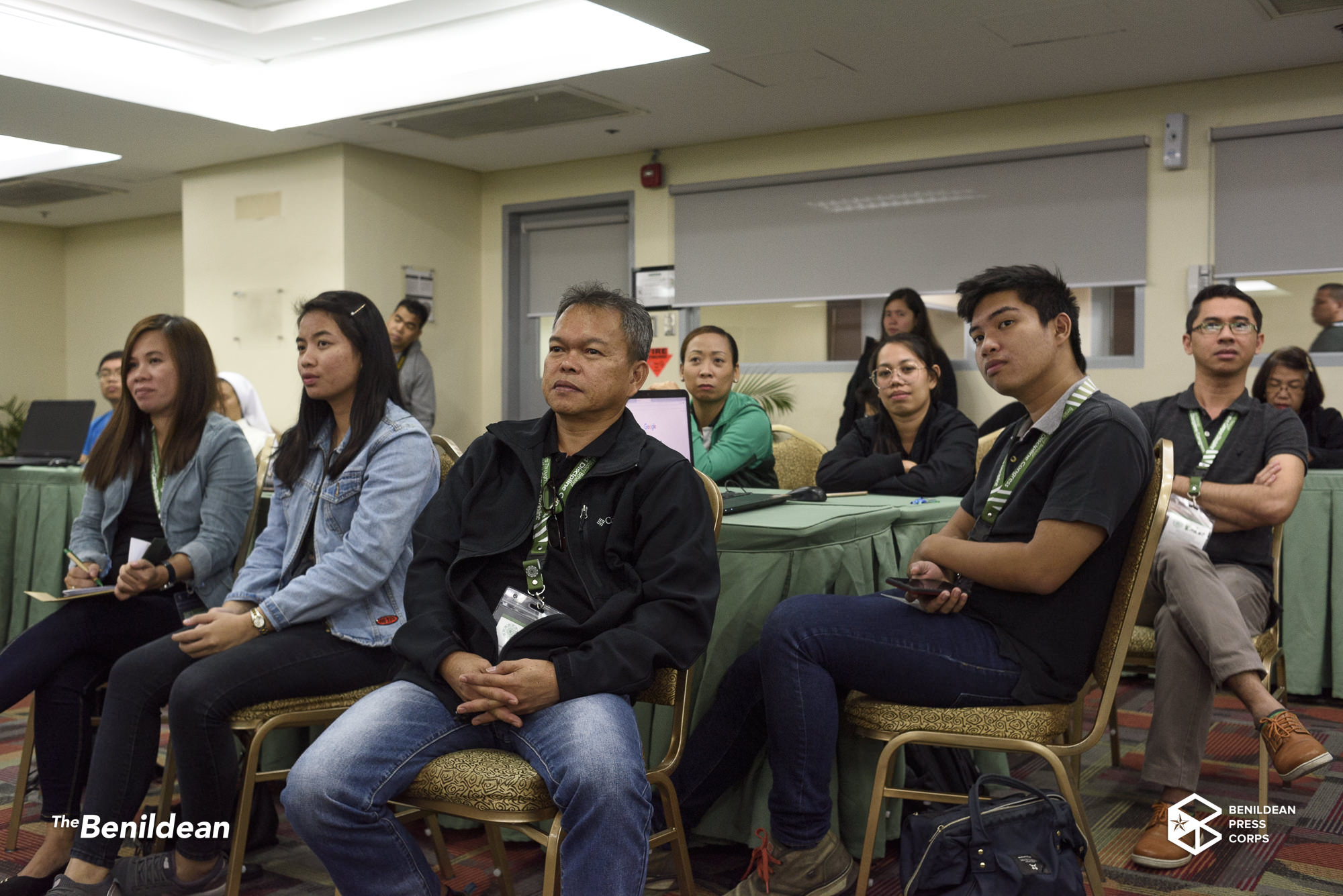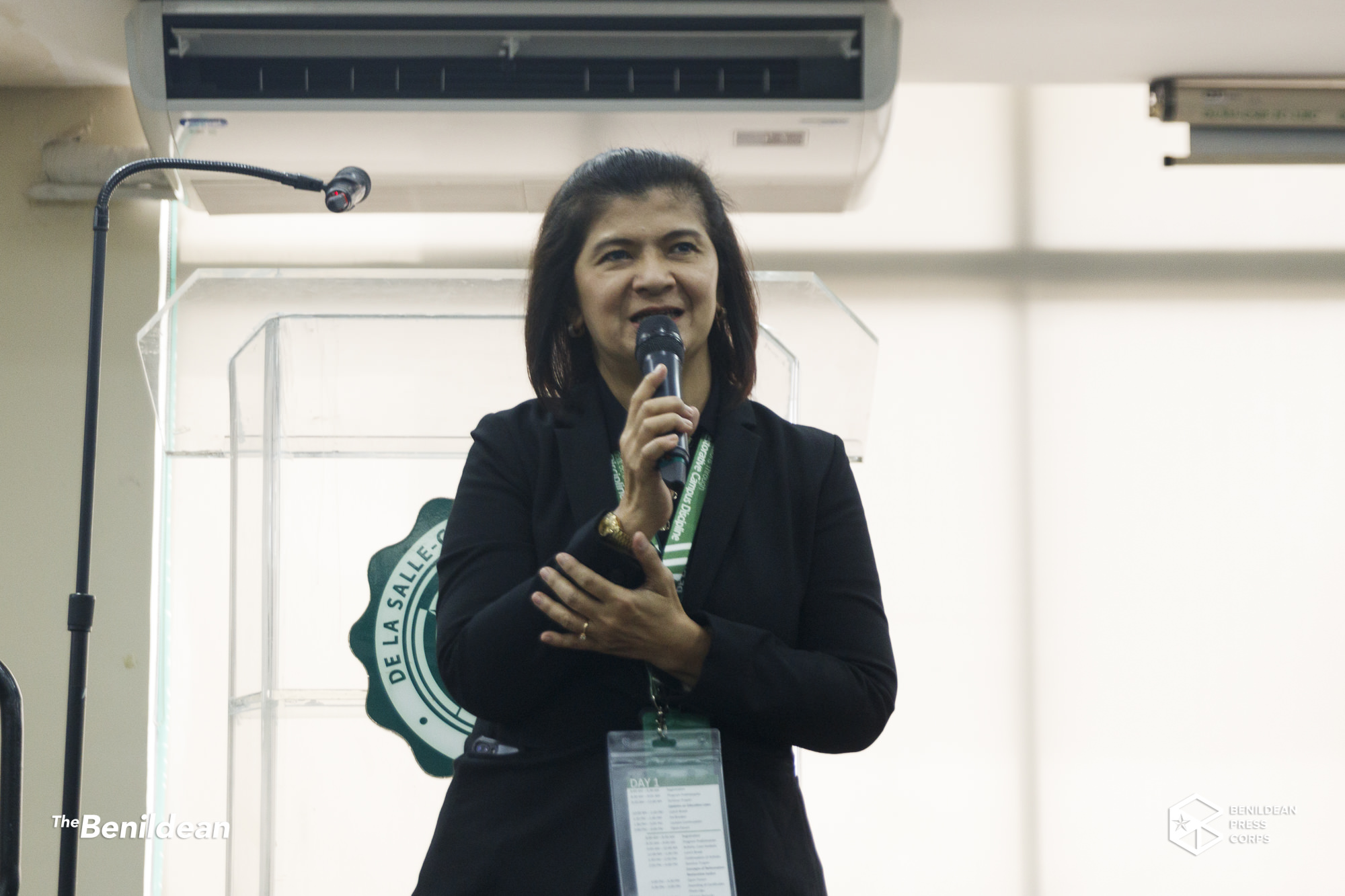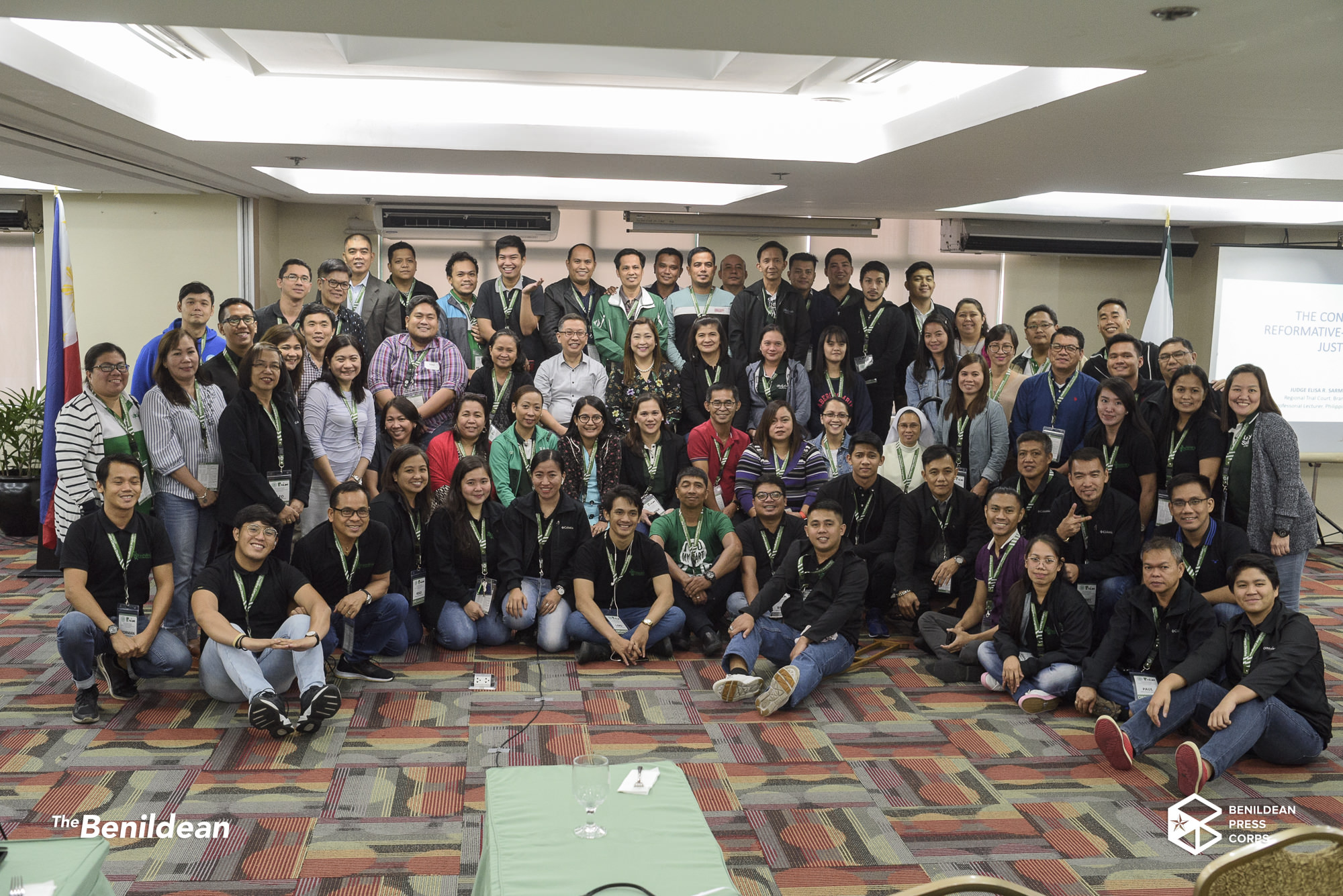Emulsifying the theme “Building Connections through Restorative Campus Discipline,” Benilde’s Office of Student Behavior (OSB), with the assistance of the Department of Student Life (DSL), spearheaded the 2nd Discipline Congress with desires to collaborate the best practices of discipline while shifting the tides from punitive discipline to a restorative one at Halles de Rheims, Angelo King International Center (AKIC) Campus from August 22 to 23.
Photo by Nina Cudal
In an interview with The Benildean, OSB Head Ms. Carmen Papa-Reyes stated the drive for this congress is that, “We are trying to build a bond with all the De La Salle schools so that we can be universal implementing restorative discipline.”
Administrators, faculty, and discipline officers from DLS-CSB Antipolo, De La Salle Medical and Health Sciences Institute, De La Salle Zobel, De La Salle Lipa, De La Salle University – Dasmariñas, La Salle College Antipolo, and La Salle University-Ozamiz gathered as delegates of the two-day congress. Theresian School of Cavite was the only school outside of the Lasallian system during the congress since Rodante C. Mendoza is one of the former senior discipline officers in DLS-CSB who now works in TSC.
Photo by Ricardo Yan II
To formally start the event, Benilde President Br. Dennis Magbanua FSC and DSL Dean Ms. Norie Ador Dionisio partook their welcome remarks and inspirational message respectively.
Atty. Ulpiano “Ulan” Sarmiento III, one of the prominent figures under education law, led a seminar and lecture proper as the guest speaker during the first day. He discussed the updates on education laws and other relevant laws concerning the rights, security and responsibility of the school, teachers, administration, and students. An open forum took place after, discussing actual cases decided by the Supreme Court (SC) against teachers and students and how it was decided upon.
During the second day, Vice President for Lasallian Mission and Student Life Neil Pariñas used GPS navigation app Waze as a metaphor for the student handbook in the context of restorative justice in his opening remarks.
“I think the student handbook is like Waze. It defines the parameters. The students have the freedom to navigate the handbook and it teaches them what is right [and] what is wrong […] We don’t change the rules. […] Students will be in certain situations that are beyond their control but the community should also continue with their lives. We will not allow the community to be victimized by the situation to a particular student,” he emphasized.
“When we deal with student misbehavior, a Lasallian will deal with that student in this manner: gentle as a mother, firm as a father. I think that is a good balance between punitive and restorative,” Pariñas added.
A case analysis workshop that served as the application from the previous day seminar was conducted afterward. Groups of disciplinary officers were each given a case commonly experienced, such as theft, sexual harassment, and cheating in the school setting and they will present their analysis and action plan with regard to the case using restorative justice.
Keynote speaker Judge Elisa Sarmiento-Flores commenced the afternoon seminar proper concerning the concept of reformative-restorative justice, its benefits, difference with retributive justice, and its own ten commandments. She pointed out that children have their own unique concerns and compares them like a broken plate that can be fixed and transformed as a work of art with higher value in the context of Kintsugi artform, hoping that this will be the same attitude that each of the schools apply with their students.
“Let’s allow ourselves to be used as agents to bind them again so that when they [become] reintegrated in society or at school, they will be a better person,” Sarmiento-Flores highlighted.
Disciplining, the Benilde way
Ms. Papa-Reyes highly emphasized the importance and role of discipline. She pointed out the message of Atty. Sarmiento III that the school is divided into two aspects: academics and character building, and both have to work together to provide a holistic formation to the students. 
Photo by Ricardo Yan II
“We want to be in touch with the students. Di naman ‘yun para maging kontrabida ng buhay nila sa college. We want to be able to help them. (…) Ang academics kasi, you can easily learn and study but the behavior part is difficult. It has to be values infused during your younger days and these ones are carried over and finishing touches na lang; so if we don’t have the values, that’s the hard part,” Papa-Reyes stated.
According to her, Benilde still lacks policies in terms of identifying the line within SDA students in terms of crossdressing and they are targeting to address. Other campuses have dress codes to follow and since not all subjects of SDA students are held in the same campus, Ms. Papa-Reyes said there is a “disconnect” in the mentioned context. Nevertheless, Benilde incorporates Gender Sensitivity and Equality through activities and acceptance towards inclusivity.
With that, Benilde OSB applies the context of restorative justice by Student Discipline Awareness Program, as well as the OSB week.


